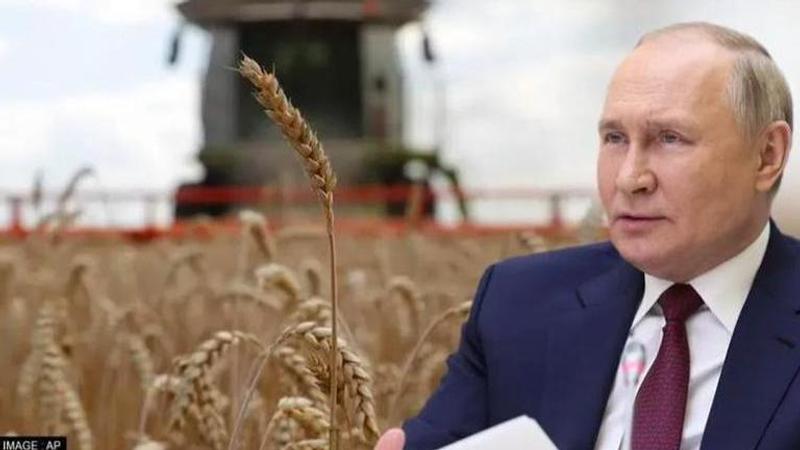Published 12:35 IST, June 13th 2022
Russia intends to remain in global food market as major exporter: Russian Minister at WTO
Russia's Minister Vladimir Ilyichev said Moscow plans to discuss the issue of the food supplies and global crisis at length during the WTO conference.

World’s major global food exporter, Russia, plans to remain in the global food market and does not intend to abandon it, Deputy Economic Development Minister Vladimir Ilyichev told TASS in an interview aired on Sunday. Speaking at the 12th ministerial conference of the World Trade Organization (WTO) that began in Geneva on June 12, Ilyichev said Moscow plans to discuss the issue of the food supplies and global crisis at length during the WTO conference. However, he reiterated that the views on what caused the staggering food crisis and critical shortage worldwide”differs significantly,” according to Russian state-affiliated news outlet Tass.
"As a major supplier of food on the world market, we intend to remain there, to supply our products to partners, our traditional consumers, and we are ready to take all the actions available to us to that end, which we have repeatedly stated," Russia’s Ilyichev said. "But in order for the system to work, it’s necessary for all participants in the process to strive for results.”
According to Moscow’s official, the significant reason for the spike in food prices in the world market "are largely related to inflation, which was caused by the injection of money, which wasn’t backed by goods, to eliminate the consequences of the pandemic in developed countries.” He added that these issues started stemming years ago, as there were big problems with the level of prices for wheat and some other goods. There were supply chain disruptions during the COVID-19 pandemic that has caused the global food crisis. “But now, this has been exacerbated by what is essentially a sanctions war," said Russia’s deputy minister.
Ilyichev indicated that Russia does not really expect that a solution [of the food problem] will be found at the WTO platform. "When they [West] try to blame us for the food crisis and its possible intensification in the foreseeable future, we say, ‘Gentlemen, first, eliminate the consequences that you have contrived by breaking supply chains, preventing grain from being shipped and insurance be secured for food shipments,’” he said during his speech, laying the blame on West’s flawed policies.
The Russian official condemned the European Union’s sixth package of sanctions on Russia, reiterating that this measure cut off Moscow’s largest bank Rosselkhozbank from the international SWIFT payment system. “How then should food be shipped, if it becomes extremely difficult to pay for it,” he asked.
India calls upon WTO to instrospect about poor, vulnerable & marginalised people
India, at the 12th WTO Ministerial Conference, called upon WTO to send a "strong message" to the wealthier nations to introspect the repercussions of the ongoing food crisis situation among the poor, vulnerable and marginalised population of the world. Commerce and Industry Minister Piyush Goyal reminded that whilst the world battles severe challenges of food shortages and looks up to WTO for the solutions, the 12th Ministerial Conference "must send a strong message that the rich care for the poor, vulnerable and marginalised people."
India strongly believes that the WTO should not negotiate rules on non-trade-related subjects like climate change and gender, which legitimately fall within the domain of other inter-governmental organisations, he iterated. Furthermore, he stressed that the WTO reforms should focus on development, and that the processes must be precise, transparent and inclusive. "WTO should embrace a people first approach to trade," said Goyal.
WTO director-general Ngozi Okonjo-Iweala, meanwhile, said that the global food crisis had kicked off due to Russia's war in Ukraine, and that it could last for years without intervention. Wheat prices had surged by 59 percent as compared to last year, sunflower oil prices soared 30 percent and maize was 23 percent higher, she warned. It is due to "gridlock due mines along the coast, huge quantity of wheat is stuck in Ukraine while global grain prices spiral upwards," she added.
Updated 12:35 IST, June 13th 2022




